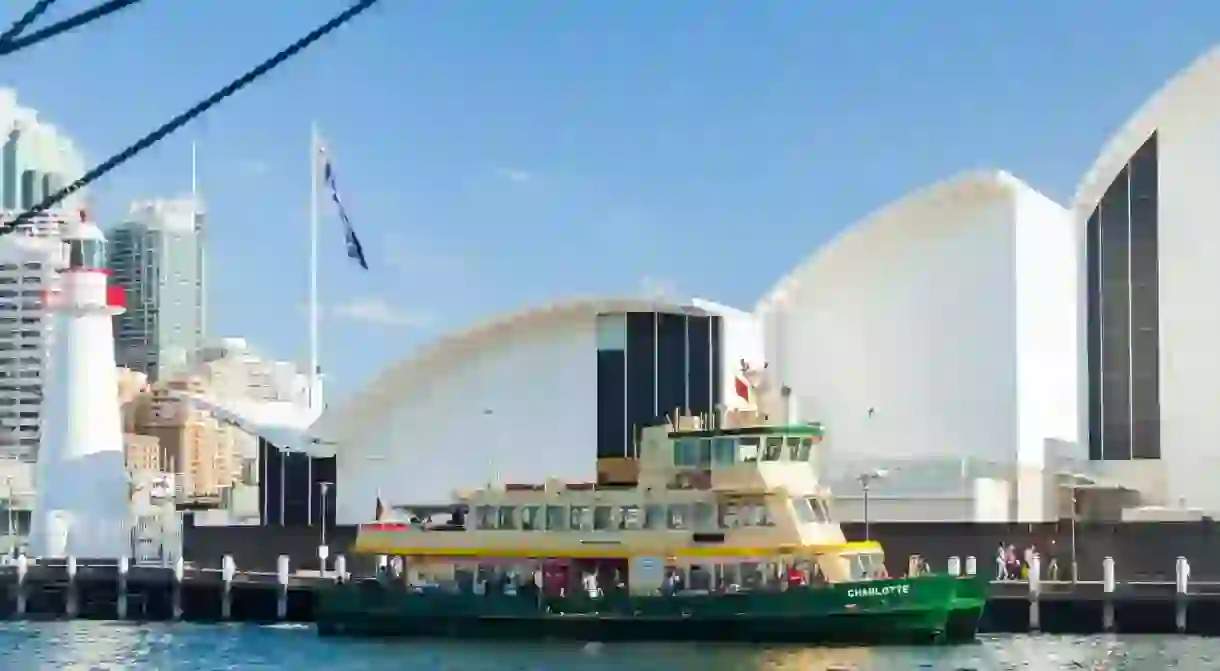The Best Museums in Sydney

From deadly wildlife to real-life convicts and modern-day human rights issues, Sydney’s museums explore Australia’s past, present and future in easy to navigate locations around the city.Melbourne often tops the leaderboards of Australian cities when it comes to museums, art galleries and the latest cultural happenings, but Sydney is not to be overlooked. Yes, it’s got the beaches, but its mix of museums – from historical inner-city homes to harbour-side heavy hitters and the latest in modern technology – make it worth ditching the surf for a day of exploring something new, old or seemingly out of this world. Tamara Lavrencic and Emily Cullen from Museums & Galleries of NSW – an organisation that helps small to medium-size museums, galleries and Aboriginal cultural centres create exciting experiences for visitors – give Culture Trip their top 10 museums to visit in Sydney.
Did you know – Culture Trip now does bookable, small-group trips? Pick from authentic, immersive Epic Trips, compact and action-packed Mini Trips and sparkling, expansive Sailing Trips.
Museum of Sydney

In 1788, Governor Arthur Phillip chose this centrally located spot as his official residence, and it soon became Australia’s first Government House. More than 200 years later and this site is now home to the Museum of Sydney, built over and around the original building’s remains. As far as modern Australian history goes, it’s a significant site. Lavrencic and Cullen describe it as providing “a good overview of the Gadigal people pre- and post-European arrival, as well as early colonial life in Sydney. It also has great temporary exhibitions on a variety of themes.”
Nicholson Museum

As Australia’s oldest university museum, Nicholson Museum features archaeological material from Egypt, the Middle East, Greece, Italy, Cyprus and Mesopotamia. For Lavrencic and Cullen, the fact that it’s “home to the largest collection of antiquities in Australia and the Southern Hemisphere” is alone a reason to go. The museum is situated in the historic Main Quadrangle at the University of Sydney, and admission is free. It’s open for limited hours on Saturdays and closed on Sundays, so visits should be planned accordingly.
Susannah Place Museum

“A rare survival of a working-class terrace” is how Lavrencic and Cullen describe Susannah Place, the museum that feels like stepping back in time. Situated in the inner-city suburb of The Rocks, Susannah Place is a terrace made up of a former grocery store and workers’ cottages dating back to 1844. View the backyard ‘dunny’ (lavatory), crowded living areas and worn lino, and experience what life was like for Sydney’s working class in the 1800s.
Australian Museum

For visitors with kids, Australian Museum is “very child-friendly”, add Lavrencic and Cullen. It’s also “Australia’s oldest museum, and houses one of the most unique and extensive collections of over 18 million cultural artefacts and scientific specimens”. For natural history, anthropology and a chance to see Australia’s deadliest wildlife up close (well, behind glass), the centrally located Australian Museum is the place to go. Due to a major renovation, the museum is closed until mid-2020, but will be well worth the wait.
Australian National Maritime Museum

No harbour-side city worth its salt would be complete without a maritime museum. With a prime spot right on the water in Pyrmont, the Australian National Maritime Museum is full of “fascinating artefacts, lively exhibitions, fun activities and the chance to board ships and experience life on the water,” Lavrencic and Cullen say. One of the biggest drawcards, though, has to be the chance to meet Bailey, assistant director of seagulls – the rescue Border Collie who has been chasing seagulls away from the museum since 2016.
Powerhouse Museum

Located next to Darling Harbour, the Powerhouse Museum is a modern and impressive building, and is even more impressive inside. It has an “extraordinary array of treasures across design and decorative arts, fashion, transport, space, science and technology,” say Lavrencic and Cullen. In short, it has it all, plus the “ever-changing programme of great temporary exhibitions complements a range of permanent displays. Go for the tours, talks, film screenings and interactive play spaces that will both stimulate and entertain the kids”.
Powerhouse Museum
Located next to Darling Harbour, the Powerhouse Museum is a modern and impressive building, and is even more impressive inside. It has an “extraordinary array of treasures across design and decorative arts, fashion, transport, space, science and technology,” say Lavrencic and Cullen. In short, it has it all, plus the “ever-changing programme of great temporary exhibitions complements a range of permanent displays. Go for the tours, talks, film screenings and interactive play spaces that will both stimulate and entertain the kids”.
Sydney Jewish Museum

In Sydney’s lively neighbourhood of Darlinghurst, the Sydney Jewish Museum is “dedicated to documenting and teaching the history of the Holocaust,” say Lavrencic and Cullen. The museum has recently been renovated and “challenges visitors’ perceptions of democracy, morality, social justice and human rights”. It also places the Holocaust in its historical and contemporary context, giving something new and different for visitors, and explores human rights issues that still face Australia to this day.
Hyde Park Barracks
Another real-life introspective into Australia’s modern beginnings, Hyde Park Barracks was built to house and control male convicts in the 1800s. A UNESCO World Heritage Site, it has a “far-reaching impact as the administrative hub for the colony’s convict system,” the two explain. The museum draws together “key threads of convict life, Aboriginal resilience and free immigration,” making it an important stop for learning how the Australia as we now know it began.
Justice and Police Museum
Australia’s convict history comes to life at the Justice and Police Museum, the historic and imposing former police buildings in Circular Quay. According to Lavrencic and Cullen, these buildings “once hosted infamous criminals such as bushranger Captain Moonlite and sly-grog queen Kate Leigh. Walk the corridor of the cells and check out the chilling collection of criminal weapons and hundreds of photos from the forensic archives”.













